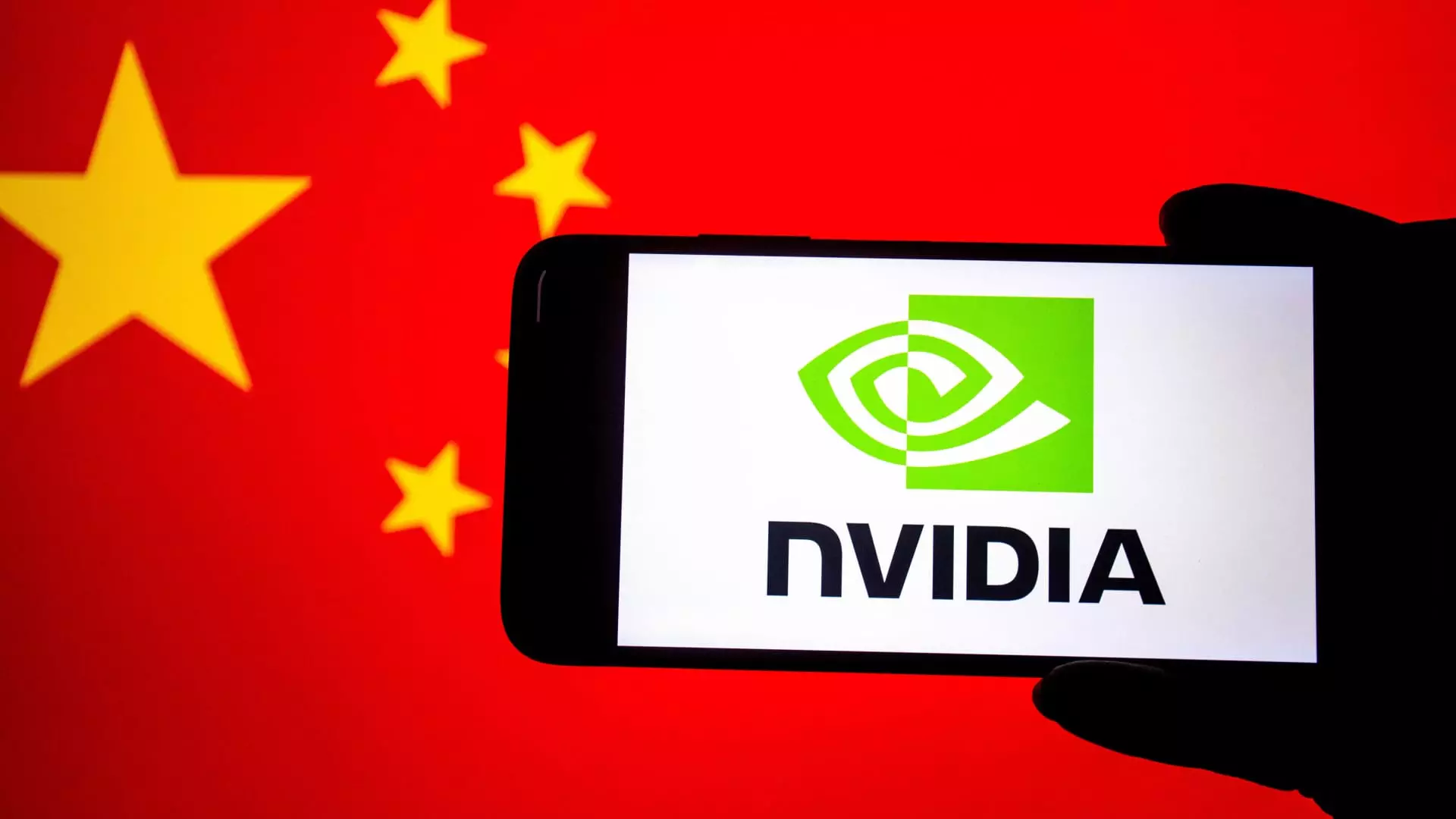The recent turmoil in premarket trading has highlighted the fragility of even the most formidable players in the tech industry. At the forefront, Nvidia, a key player in the artificial intelligence (AI) landscape, witnessed an alarming decline of over 11% in its stock prices. This drop marks a significant set-back, reminiscent of the tumultuous market conditions experienced in March 2020. The catalyst for this sell-off stemmed from the launch of a free, open-source large-language model by a Chinese startup, DeepSeek. Developed in an astonishingly brief two months at a minimal cost of just $6 million, this initiative raises pivotal questions regarding Nvidia’s dominant position and the necessity of its high-performance chips.
Nvidia’s plight did not occur in isolation; it signaled a broader reevaluation of AI investments across major tech companies. The ramifications of DeepSeek’s breakthrough have rippled through the market, provoking a sell-off of stocks from other tech heavyweights. For instance, Microsoft’s shares fell by 5%, while Amazon saw a decline of over 4%. Meta Platforms was also not spared, with a dip of 2.5%. This broad based market reaction suggests a significant concern among investors regarding the massive expenditures by these tech giants on AI research and infrastructure, particularly when the value proposition of such investments is challenged by disruptive new entrants.
The repercussions were also felt sharply within the datacenter sector. Vertiv Holdings, which specializes in datacenter services, experienced a staggering 16% drop in its stock value. The potential ramifications of reduced investments in AI infrastructure pose a significant risk to their business forecasts. With the AI landscape shifting, the future demand for necessary infrastructure remains uncertain, thus affecting companies like Vertiv which are closely tied to these spending trends.
Additionally, energy providers that cater specifically to AI infrastructure, such as Constellation Energy and Vistra, were similarly affected. Both companies saw their stock prices decline by at least 10%. The perception that less energy might be required if AI models can be efficient with fewer chips has created a cautious atmosphere around these sectors.
Despite the overall bearish trend in tech and associated industries, there were exceptions that highlighted the divergence within the market. AT&T, for example, displayed resilience by rising 2.3% following an earnings report that surpassed expectations. With a revenue of $32.3 billion and earnings per share of 54 cents, AT&T demonstrated that there remain pockets of growth amid uncertainty.
In contrast, D.R. Horton faced pressures of a different nature. The homebuilder’s shares fell nearly 1% after a downgrade to neutral from buy by Bank of America. Cited concerns focused on a challenging housing market and rising input costs, underscoring the complexities many companies face in navigating their operational environments.
The market’s reaction to DeepSeek’s disruptive technology has indeed raised critical questions regarding the future trajectory of AI investments among leading technology companies. The swift and substantial sell-offs across multiple sectors reveal a market that is becoming increasingly cautious and perhaps more rational in its valuations. As AI continues to progress, the dynamics of competition within the sector could lead to further volatility, challenging the supremacy of long-standing leaders like Nvidia while also reshaping the broader investment landscape in technology.

